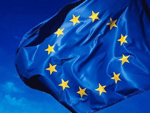Published on Thu, 2014-04-24 13:06
Speaking at a recent United Nations financing for development meeting, human rights organizations argued human rights should inform commitments to finance the new development agenda. The High Level Dialogue of ECOSOC with the Bretton Woods Institutions, the World Trade Organization and UNCTAD is held every year and it is one of the follow up tracks for the Financing for Development Conference. This year’s edition, held on April 14-15, 2014, took place at a significant juncture. Governments are deliberating on the features of a new generation of development goals that, as part of the “post-2015 development agenda,” will replace the Millennium Development Goals in 2015. Commitments to financing the new goals are expected to play an important role in those negotiations. At the same time, governments are in negotiations to define when the Third International Conference on Financing for Development will be held. |
Published on Thu, 2014-04-24 13:00
Ten CSOs are conducting their activities in accordance with the International Standards for domestic election monitoring. In order to support the conduct of free and fair Iraqi Parliamentary and IKR Provincial Councils elections on April 30, 2014, ten Iraqi CSOs from ten different governorates came together to form an informal alliance acting in accordance with the “Declaration of Global Principles for Nonpartisan Election Observation and Monitoring by Citizen Organizations”. |
Published on Tue, 2014-04-15 14:22
The increased influence of corporations over the UN development agenda was highlighted by several civil society organizations last April 8 in New York. During a side-event at the Church Center, (see the video here) different worrying trends were highlighted: the redefinition of ODA that will put more public funds in the hands of corporations, the lack of accountability of the different associations between corporations and UN agencies and the privileged access that big corporate players may be getting over international norm-setting. At the General Assembly hearing on partnerships, Roberto Bissio denounced how information access is being made more restrictive under corporate pressure. Brazilian Ambassador Guilherme Patriota condemned the "outsourcing of development responsibilities" and announced his country opposition to the UN Partnership Facility proposed by Secretary General Ban Ki-moon. (see the video here). » |
Published on Sun, 2014-04-13 10:13
The European Parliament has just released a major report with a clear message for all those engaged in the growing debate about the role of external private finance in development: quality matters far more than quantity. As the post-2015 debate on financing development continues, and the UN gears up for a major Financing for Development conference in 2015 or 2016, this timely paper – co-authored by Jesse Griffiths and three other experts - gives clear recommendations on how European governments can ensure that fighting poverty stays at the heart of this agenda. |
Published on Thu, 2014-04-10 22:15
Is European Union really committed to Human Development? EU has made an undeniable progress in promoting the integration of policy coherence for development (PCD) at the discursive level, nevertheless European policies developed in the last five years have not only had profoundly negative consequences for other countries and people, but have made living conditions significantly precarious for large part of the population living in Europe. There appears to be a more than significant gap between the policy commitments undertaken by the European institutions and Member States, and the real actions to promote greater PCD at both EU and national levels. |
SUSCRIBE TO OUR NEWSLETTER







